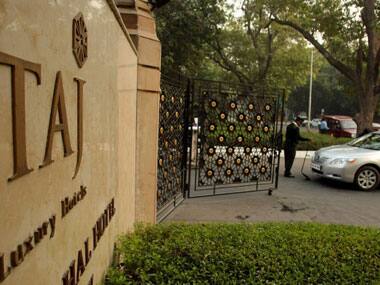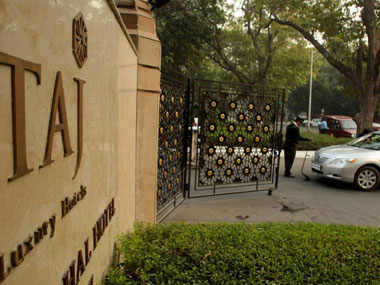Luxury hotel chain Orient Express has once again rejected a takeover bid by the Tata-owned Indian Hotels, saying the proposal “significantly undervalues” the company.
The rebuff is a major setback to Ratan Tata’s attempt to substantially increase its global footprint and reduce dependence on its India business.
But while Tata may be disappointed with the rejection and may possibly even think of increasing the offer price, which was a 40 percent premium to the prevailing share price of Orient Express at the time of offer, investors of Indian Hotels are certainly rejoicing.
[caption id=“attachment_520147” align=“alignleft” width=“380”]
 When Tata announced its desire to buy the US-based Orient, shareholders had given the proposal a thumbs-down. Reuters[/caption]
When Tata announced its desire to buy the US-based Orient, shareholders had given the proposal a thumbs-down. Reuters[/caption]
This is more than evident in its stock price, which is already trading 2 percent higher on the Bombay Stock Exchange, while the Sensex is absolutely flat.
On the other hand, shares of Orient-Express on NYSE fell 10% today after it rejected a buyout offer. Seems like Orient shareholders too are expecting a higher valuation, but are afraid that the deal may not come through any time soon.
When Tata announced his desire to buy the US-based Orient, shareholders had given the deal a thumbs-down. A day after the bid amount was announced, Indian Hotels stock closed 5.5. percent lower.
This is because they are worried about the premium the company is willing to pay to acquire Orient, which it has been eyeing for about five years now.
“There shouldn’t be desperation to buy the particular business at a premium,” Deven Choksey, managing director of brokerage firm KR Choksey, was quoted as saying by the Wall Street Journal when the Tatas announced the bid offer.
Given that Tata is willing to pay a high price, P Phani Sekhar, Fund Manager-PMS, Angel Broking, in an interview with ET Now cautioned that investors should be clearly looking at what return on capital will be generated over the next two to three years because they have a definite time horizon.
“From that point of view, it certainly seems that investors may be under pressure, if they continue to be in the stock after this big bang acquisition. Investors must revisit their investment hypothesis in Indian Hotels.”
Also, given that the global economy is still shaky, demand for luxury goods and services is quite tempered at the moment. Had the Orient-Express acquisition gone through, it would have escalate Indian Hotels’ borrowing costs sharply.
Indian Hotels had debt of Rs 3,800 crore as of March 2012, and it was willing to take on Orient-Express’ debt too ( of about $530 million or Rs 2,800 crore) post the acquisition.
“It is good that Orient has rejected the offer, or else it would have put more pressure on the finances of a company which is already debt ridden… and in the current circumstances of slowdown it would have been suicide had Tatas agreed to infuse even more capital,” an Indian Hotels shareholder told Firstpost.
“Generally, acquisitions for Indian Hotels have not been rewarding for the company,” Niraj Mansingka, an analyst with Edelweiss Capital in Mumbai told Reuters. The company’s international portfolios are recording losses.
Clearly, if the deal had gone through, it would have strained Indian Hotels’ profitability. The company posted a loss of 410 crore in 2011.
Hence high debt and low profitability will pinch investors in the short term.
However, this investor relief may just be short-term as the OEH rejection may not be the end of the road for the Tata group. While Tata’s offfer price at the moment is a 40 percent premium, it is still less than Orient’s peak price of $60 per share in November 2007.
According to a report in the Economic Times, the Tatas have already arranged funding. “Though Indian Hotels has not made any public statement to that effect, it may not be averse to increasing its offer price if it feels the need to do so.”
In the long term, Orient Express deal might prove to be a strategic fit for Indian Hotels since the former operates in leisure and adventure segments, while Indian Hotels operates luxury business hotels. Moreover, as Firstpost noted earlier , it will give Tata a ready access to a a high-end customer base while strengthening Indian Hotels’ position at the top.
)